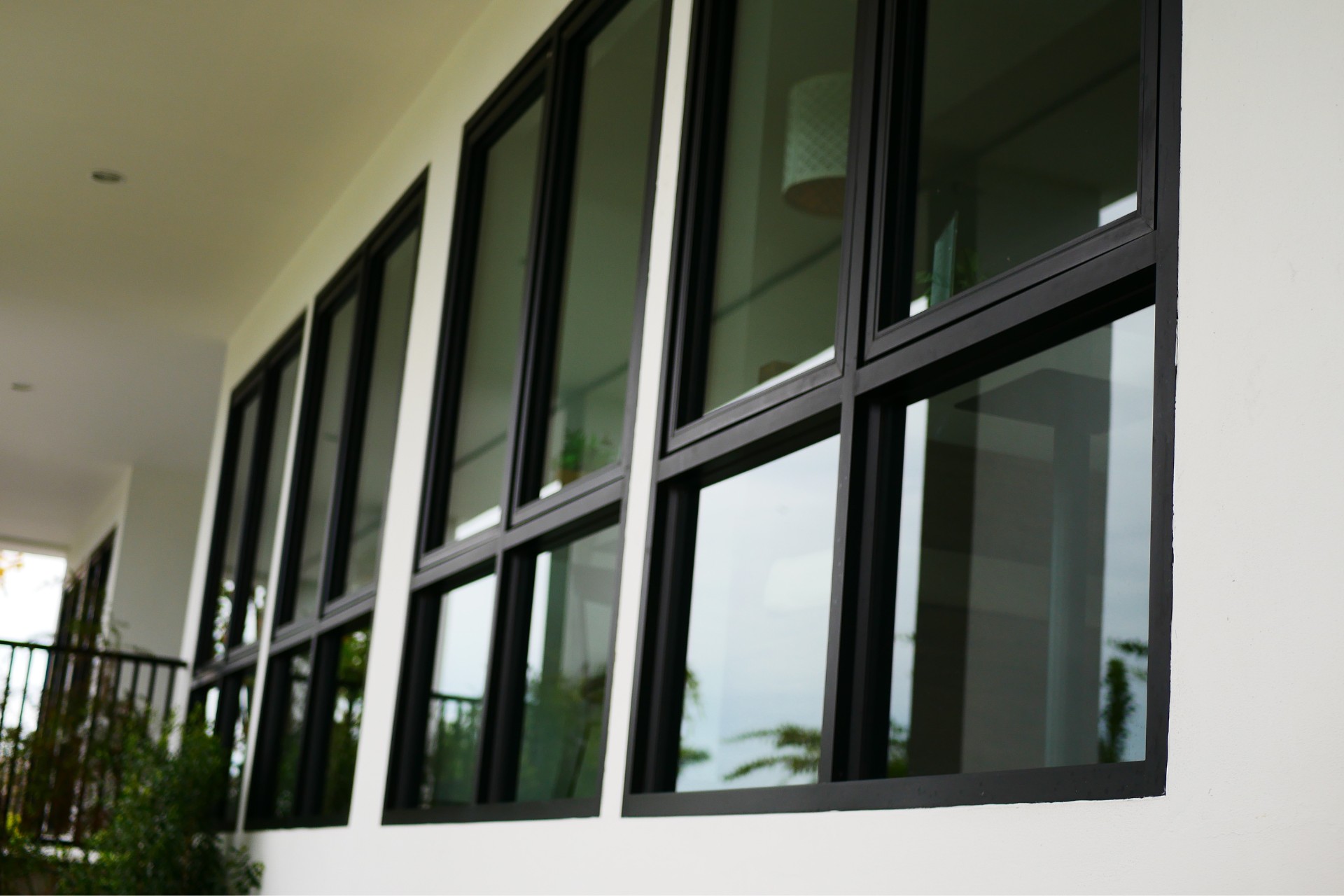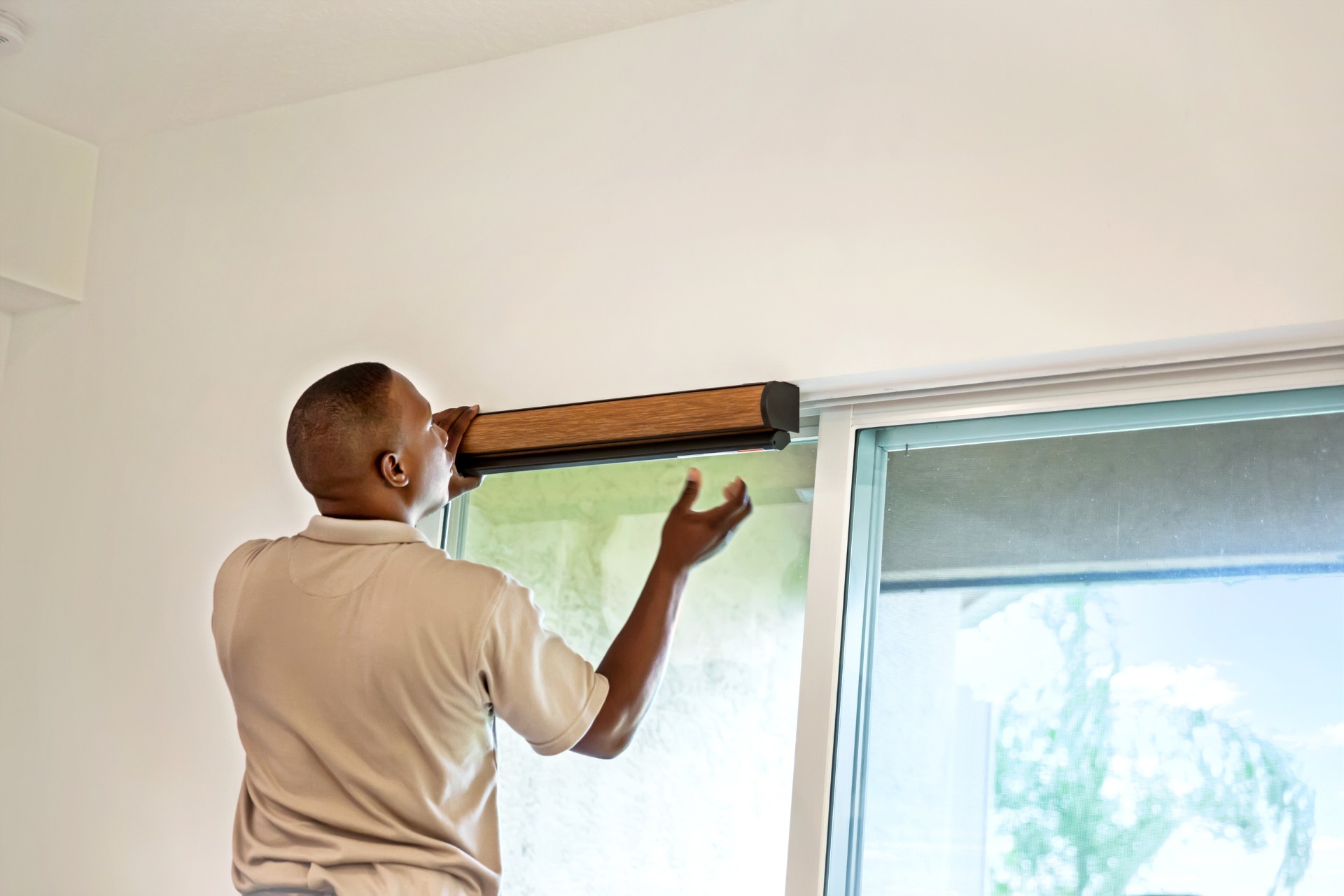You're unlikely to get sunburned through windows; but with some harmful UV rays passing through, it's still possible. Fortunately, you can strengthen your windows' UV defence and protect your home with energy-efficient windows.
So, if you’re wondering, “Do windows block UV?” you’re on the right page. We’ll explore the answer to that question and how you can prevent UV damage on your skin and home. Let’s get started.
Do Windows Block UV Rays?
Of the three types of radiation the sun emits, UVB and UVA are the ones to worry about. UVB rays are primarily responsible for sunburns, while UVA rays contribute to premature skin aging and can also play a role in skin cancer development.
The good news is that standard window glass effectively blocks almost 100% of UVB rays, which is why sunburns are uncommon indoors. However, nearly 100% of UVA rays penetrate the glass. Although less associated with burning, they still pose significant risks to skin health, like skin cancer.
While windows offer some protection, they do not provide a complete shield from the sun's harmful rays. You can increase this protection with a few window specifications. The type of glass (e.g., float glass, tempered glass), its thickness, and additional coatings can all affect the amount of UV light radiation that windows can block.

Image Source: Canva
How Low-E Coating Helps Protect Windows
Fortunately, you can improve your windows’ defence against harmful UV rays with energy-efficient windows. These windows are designed to reduce heat transfer, improving both comfort and energy consumption. Interestingly, these windows often offer the added benefit of enhanced UV protection.
Can UV rays go through glass? While some UV rays can penetrate standard glass, energy-efficient windows, especially those with low-E coatings or window tints, can significantly reduce UV exposure.
What is a Low-E Coating?
Low-E, or low-emissivity, coatings are microscopic, transparent layers applied to window glass. These coatings are designed to control the flow of heat through the glass without compromising the amount of visible light that enters a space.
While some glass allows UV rays through windows, low-E coatings are specifically designed to reflect a significant portion of these harmful rays. This added layer of protection helps shield your exposed skin, furniture, and artwork from the sun's damaging effects.
Read more: What Are Low-E Glass Windows?
How Do Low-E Coatings Work?
Low-E coatings work by selectively reflecting specific UV rays through windows. They are engineered to reflect infrared heat while allowing visible light to pass through. This means that during the winter, the coating helps to keep heat inside your home, reducing energy consumption. In the summer, it helps to reflect the sun's heat, keeping your home cooler.
There are two primary types of Low-E coatings:
- Passive Low-E Coatings: These coatings are designed to primarily reduce heat loss in winter by reflecting infrared heat indoors. They are ideal for colder climates.
- Solar Control Low-E Coatings: These coatings are designed to reduce solar heat gain in summer while still allowing visible light to enter. They are suitable for warmer climates.
Benefits of Low-E Coatings
Beyond energy efficiency, getting new low-E windows offers several other advantages:
- Improved Comfort: Low-E coatings contribute to a more comfortable indoor environment throughout the year by regulating heat transfer.
- UV Protection: Many Low-E coatings also provide enhanced protection against harmful UV rays, helping to protect furniture, flooring, and occupants from damage.
- Reduced Condensation: By minimizing temperature differences between indoor and outdoor environments, Low-E coatings can help reduce condensation on window surfaces.

Image Source: Canva
How to Stop UV Rays Through Windows
While energy-efficient windows offer increased protection against UV rays, you can take it up a notch with these strategies.
Use Window Films
Window films are a popular and effective option for blocking UV rays through windows. These thin, transparent films are applied to the interior of your windows and act as a protective barrier.
Many window films are specifically designed to block a high percentage of UV radiation while still allowing natural light to enter. They also offer added benefits such as reducing glare, heat gain, and fading of furniture and hardwood floors.
Use Indoor Sun Protective Measures
Aside from a UV window film, here are some indoor sun protection measures that can help shield you from UV rays:
- Upholstery and Furniture Fabrics: Consider the UV resistance of your upholstery and furniture fabrics. Some fabrics are treated to resist fading caused by direct sunlight.
- Curtains, Blinds, and Shades: These window treatments can effectively block sunlight and reduce UV exposure. Opt for thick, dark-coloured fabrics that offer better protection.
When selecting window treatments, opt for thick, dark fabrics with high UV protection ratings and blackout or thermal linings. All these block UV rays better.
Apply Sunscreen, Even Indoors
If you’re still asking, “Can you get sunburnt through glass?” the answer is yes. Most UVA rays can still pass through your windows. That’s why applying sunscreen indoors, especially near windows, is still recommended.
UVA rays, which contribute to skin aging and skin cancer, can penetrate glass. By applying sunscreen with a broad-spectrum SPF, you can provide an additional layer of protection for your skin.
Enhance UV Protection with Clera Windows + Doors
Here’s a rundown of what we know now:
- Can UV rays go through glass? Yes, UVB and UVA do.
- Do windows block UV? Yes, standard windows block UVB, the sunburn-causing ray, but not UVA, which can contribute to skin cancer development.
- Can you get a sunburn through window glass? Yes, but it’s unlikely with most windows blocking UVB. However, skin damage is still possible due to UVA, but only through extended exposure.
So what can you do considering this? Clera Windows + Doors offers a solution to safeguard your home and family. Our energy-efficient windows are meticulously crafted to not only enhance your home's comfort and energy efficiency, but also provide superior protection for UV rays through windows.
As a family-run Canadian business with over 45 years of experience, Clera Windows + Doors is committed to delivering exceptional quality and customer service. Our windows undergo rigorous testing to ensure they meet the highest standards of performance and durability.
By choosing Clera, you're investing in more than just windows; you're investing in the health and well-being of your family. Contact us today to schedule a consultation and discover how our windows can transform your home.








